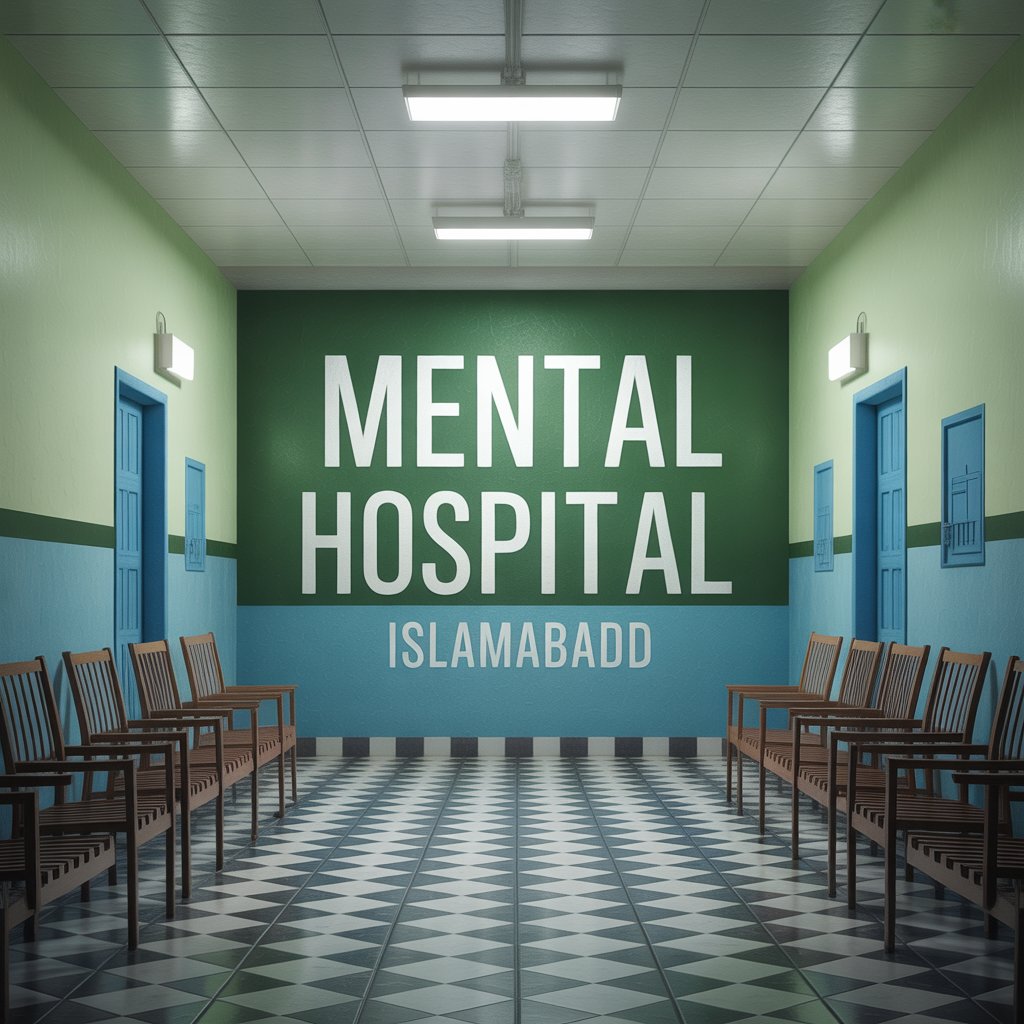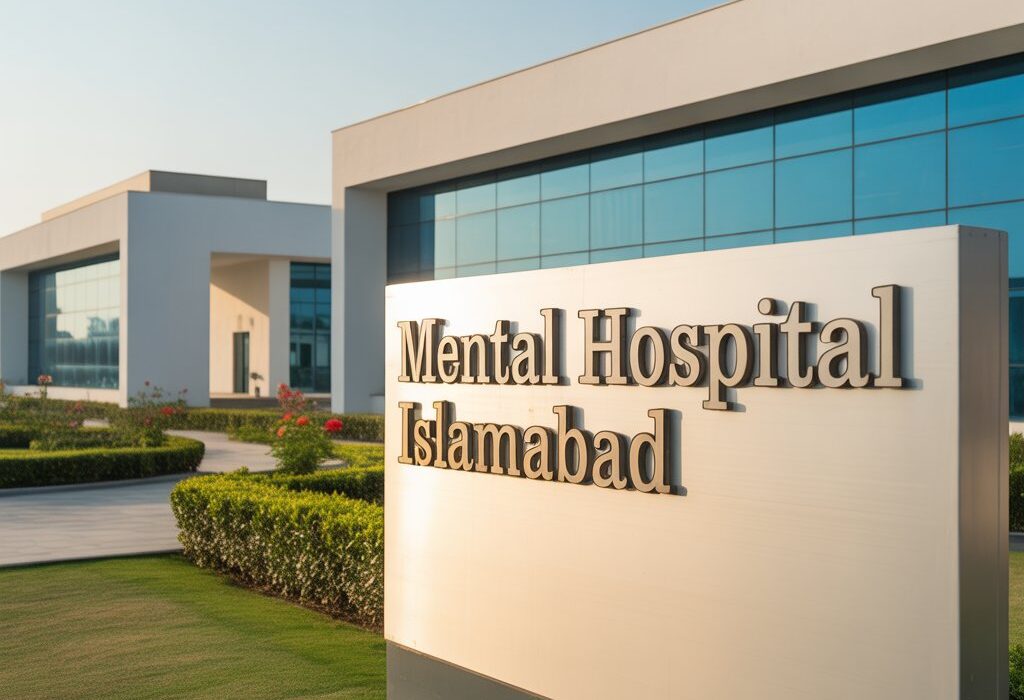Your Guide to a Mental Hospital Islamabad
Seeking help for mental health challenges is a profound act of courage. In a bustling city like Islamabad, finding the right support system is the most crucial step toward healing. For many residents of the capital and surrounding areas, this journey leads them to explore the services of a dedicated Mental Hospital Islamabad. Understanding what modern psychiatric care entails can dispel outdated fears and illuminate the path to recovery, transforming a moment of crisis into an opportunity for renewal.
The Evolution of Mental Healthcare in Islamabad
Gone are the days when mental health facilities were merely places for long-term confinement. A contemporary Mental Hospital Islamabad operates as a specialized medical center focused on active, compassionate, and evidence-based treatment. The core mission of these institutions is to provide a safe, structured environment for individuals experiencing acute symptoms that cannot be managed through outpatient care alone. This modern approach treats mental health with the same seriousness and scientific rigor as physical health, fostering dignity and hope.
When to Consider a Mental Hospital in Islamabad
Recognizing the signs that indicate the need for inpatient care can be challenging for individuals and families. Generally, specialized hospitalization becomes necessary when a person’s safety or the safety of others is at risk. Key indicators include:
- Severe Suicidal Ideation or Self-Harm: When someone is actively planning or attempting to end their life, a secure environment is essential for stabilization.
- Acute Psychotic Symptoms: Experiencing hallucinations (seeing or hearing things that aren’t there) or delusions (fixed false beliefs) often requires intensive monitoring and medication management.
- Inability to Perform Basic Self-Care: This includes situations where a condition like severe depression prevents a person from eating, bathing, or managing basic daily activities.
- Co-occurring Disorders: Complex cases involving both severe mental illness and substance abuse benefit from the integrated, round-the-clock care a hospital setting provides -2-4.
Making the decision to seek this level of care is a responsible and potentially life-saving step.
A Glimpse Inside: Services and Treatment Modalities
The strength of a reputable Mental Hospital Islamabad lies in its multidisciplinary approach. Upon admission, patients typically undergo a comprehensive assessment by a team of psychiatrists and psychologists, leading to a personalized treatment plan -3. Key components of this plan often include:

1. Medical and Psychiatric Management
A cornerstone of inpatient treatment is careful medication management. Psychiatrists work to find the most effective medications at the proper dosages to alleviate symptoms. The controlled hospital environment allows for close observation of how a patient responds, enabling swift adjustments to ensure both efficacy and comfort -3.
2. Evidence-Based Psychotherapies
Therapy is the heart of long-term recovery. Patients engage in individual psychotherapy sessions to delve into the root causes of their condition and develop coping strategies. Furthermore, group therapy sessions provide a powerful sense of community and shared experience, helping to break the isolation that often accompanies mental illness -2-3. Common therapies include Cognitive Behavioral Therapy (CBT), Dialectical Behavior Therapy (DBT), and trauma-informed therapies.
3. Holistic and Adjunctive Therapies
Modern mental healthcare recognizes the need to heal the whole person. Therefore, treatment plans frequently incorporate occupational therapy to rebuild practical life skills, recreational therapy to encourage joyful expression, and various wellness activities like mindfulness, meditation, and art therapy -2-4. These therapies are designed to help patients reconnect with themselves and build a foundation for a fulfilling life post-discharge.
Navigating the Choice: What to Look For
Selecting the right facility is a deeply personal and important decision. When researching a Mental Hospital Islamabad, you should prioritize certain key aspects:
- Accreditation and Qualified Staff: Ensure the institution is recognized and staffed by licensed professionals, including psychiatrists, clinical psychologists, and trained psychiatric nurses -6.
- Treatment Philosophy: Look for a center that emphasizes compassion, patient dignity, and evidence-based practices. The environment should feel supportive and respectful.
- Aftercare Planning: A hallmark of a reputable center is a robust aftercare program. A smooth transition back to daily life, with connections to outpatient therapists and support groups, is vital for sustaining recovery -10.
Don’t hesitate to ask questions about their approach, staff qualifications, and success rates during your research.
Breaking the Stigma, Building a Support System
One of the most significant barriers to seeking care remains societal stigma. It is essential to reframe mental illness as a medical condition, not a personal failure or a source of shame. Choosing to seek treatment is an act of profound courage and strength -5. Families play an indispensable role in this journey. By educating themselves, participating in family therapy sessions, and offering unwavering, non-judgmental support, loved ones can create a nurturing environment that significantly boosts the chances of successful, long-term recovery -2-10.
A Partner in Your Journey to Wellness
In conclusion, a dedicated mental hospital in Islamabad represents a critical resource in the healthcare ecosystem. It provides a safe harbor during a mental health crisis, offering the expert care and structured environment necessary for healing. By understanding the comprehensive services, ethical approach, and compassionate philosophy of a modern mental health institution, individuals and families can approach the path to recovery with confidence and hope. Remember, reaching out for help is the first and most important step on the road to reclaiming your peace and well-being.
Frequently Asked Questions (FAQs)
1. What is the main difference between a mental hospital and a regular therapist?
A mental hospital provides intensive, 24/7 inpatient care for individuals in acute crisis, focusing on stabilization through medication management and a structured environment. A therapist typically offers scheduled outpatient sessions for ongoing talk therapy. The hospital is for severe cases where safety and constant medical supervision are needed.
2. What conditions does a mental hospital in Islamabad typically treat?
These facilities treat severe mental health conditions that require intensive intervention. This includes major depressive disorder with suicidal risk, psychotic disorders (like schizophrenia), severe bipolar disorder episodes, acute anxiety disorders, and complex cases involving dual diagnosis (mental illness with substance abuse).
3. Can families be involved in the treatment process?
Yes, reputable hospitals strongly encourage family involvement. This often includes family therapy sessions, educational workshops about the patient’s condition, and regular updates from the treatment team. Family support is considered a crucial component of the recovery process.
4. What happens after a patient is discharged?
A robust aftercare plan is created before discharge. This typically includes referrals to outpatient therapists, psychiatrists for continued medication management, and recommendations for support groups. The goal is to ensure a smooth transition and provide ongoing support for long-term wellness.
5. How do I know if a mental hospital in Islamabad is reputable?
Look for accredited facilities staffed by qualified psychiatrists and clinical psychologists. A reputable center will have a clear treatment philosophy, a clean and safe environment, and will emphasize transparent communication and comprehensive aftercare planning. It’s advisable to research and ask about their staff credentials and treatment approaches.




